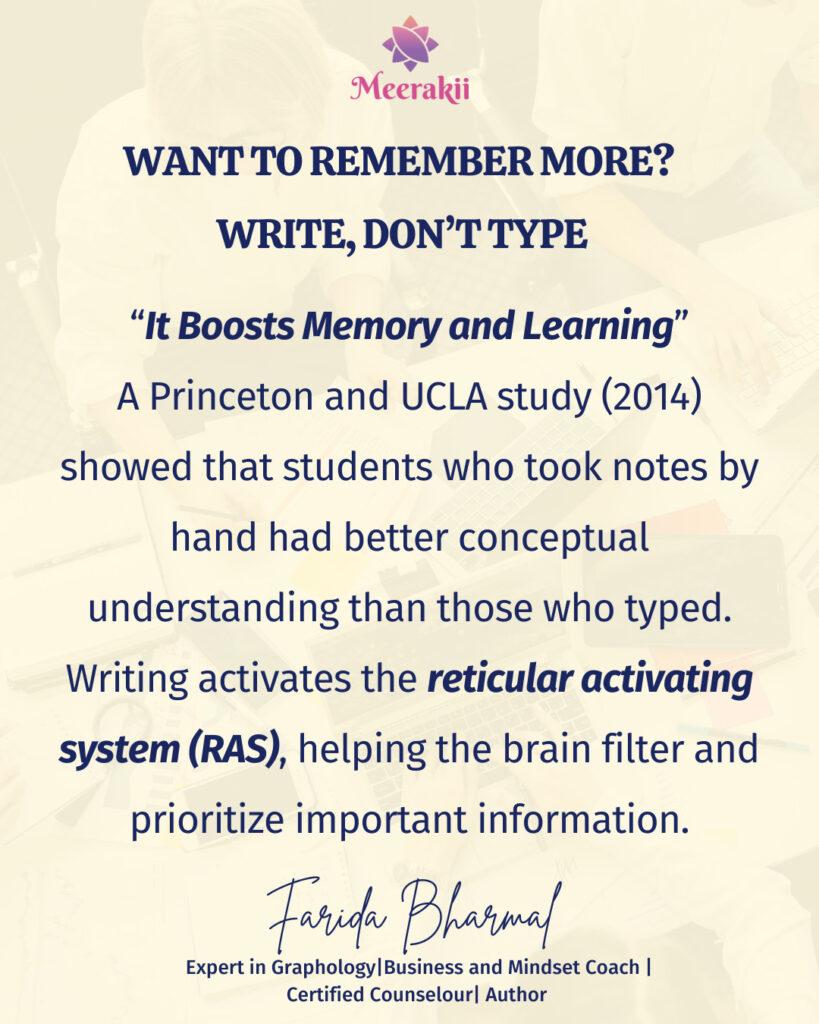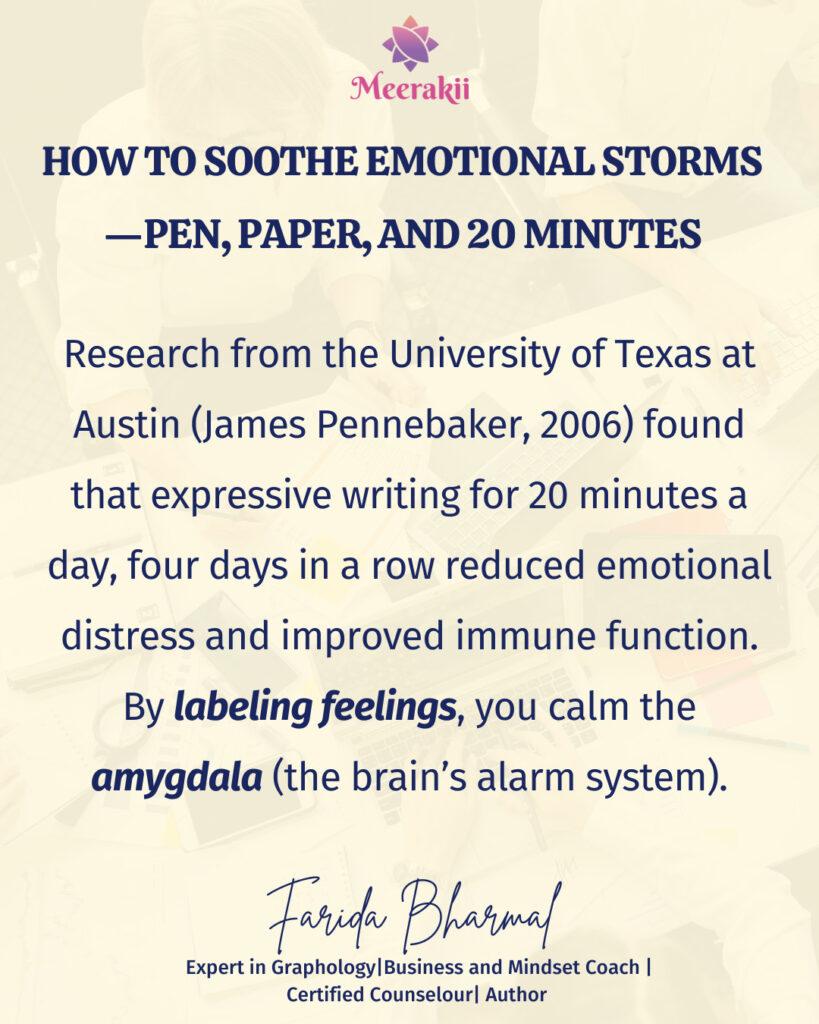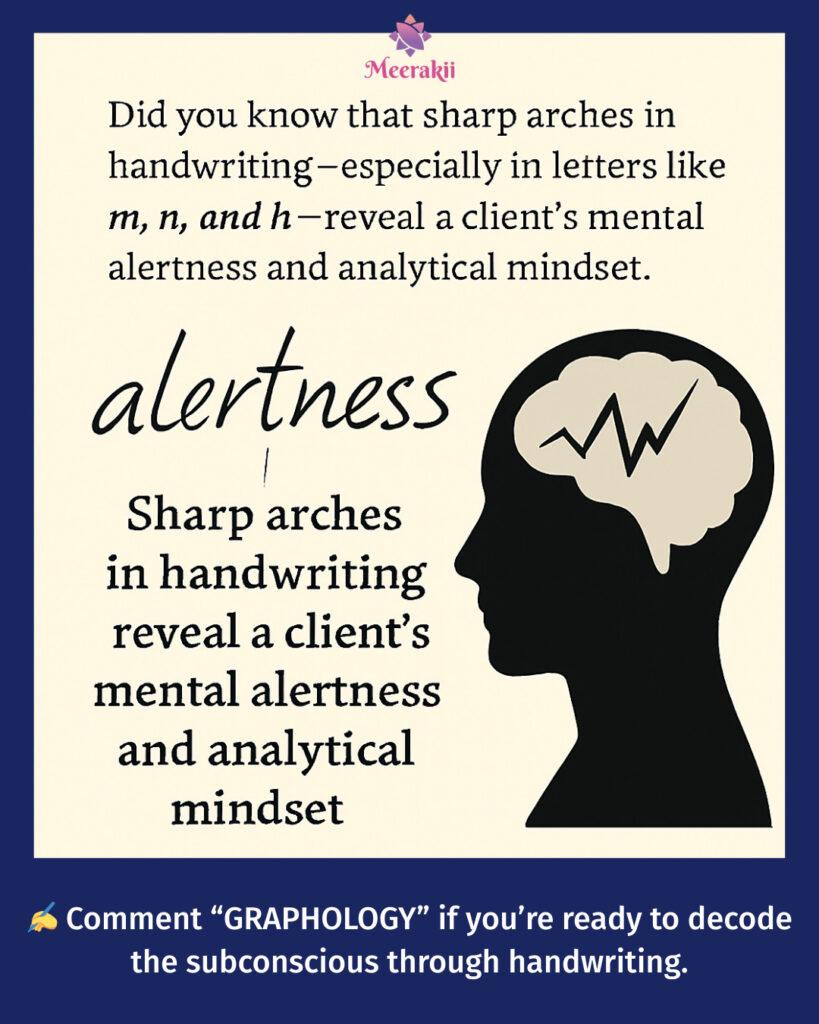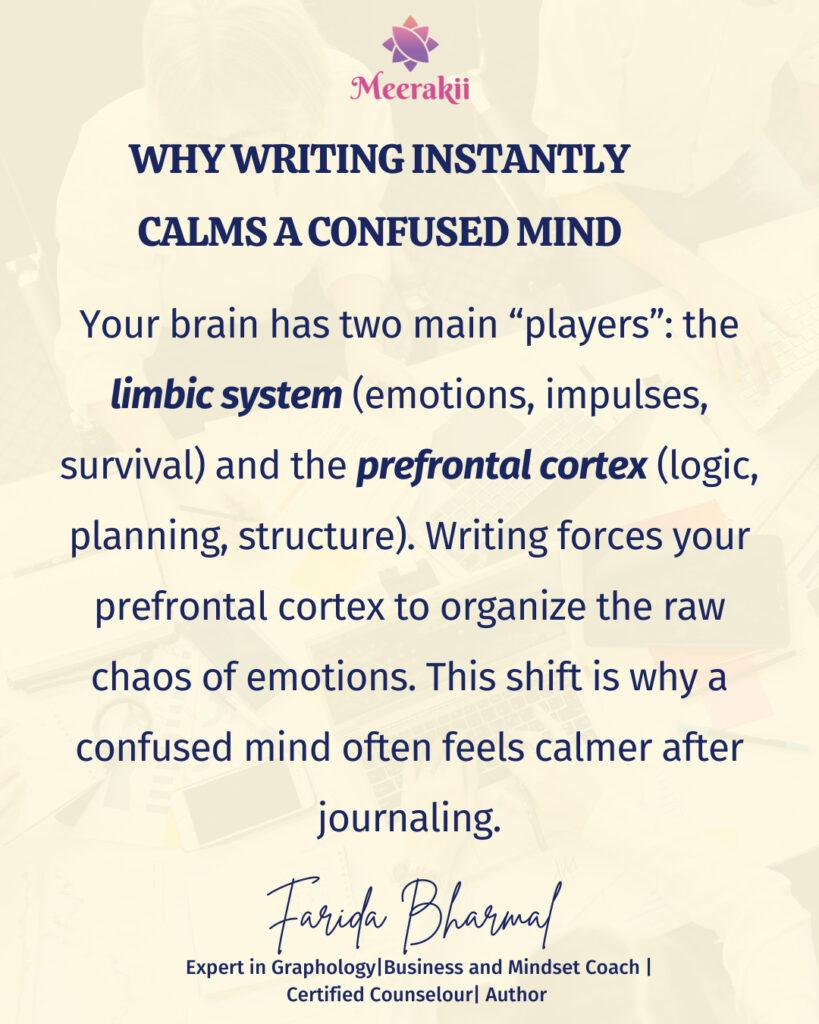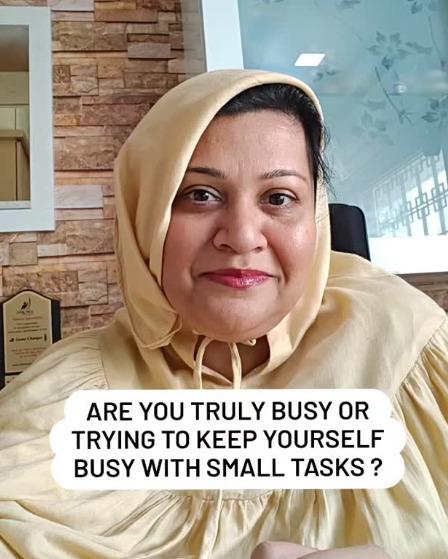Seema looked calm , but her handwriting said a different story
Seema looked calm. But her silence was screaming. She had hurt herself—and no one knew why. Her rage had no voice. And when anger isn’t expressed, it doesn’t vanish. It settles in the body. It shows up as pain, fatigue, illness. When she came to me, we didn’t just talk. We decoded her handwriting. Her […]
Seema looked calm , but her handwriting said a different story Read More »
